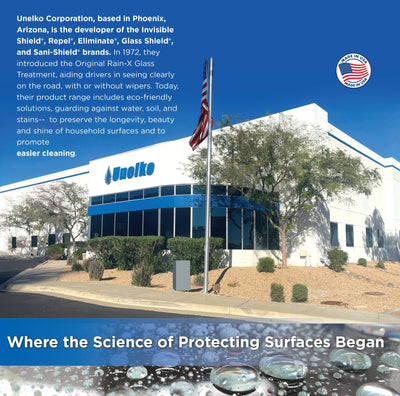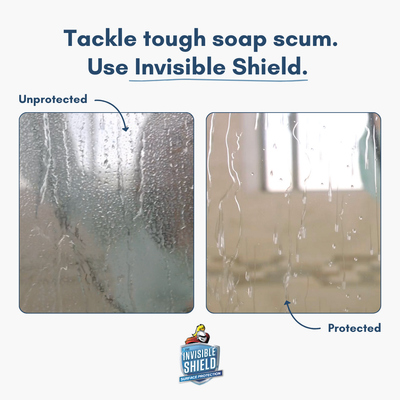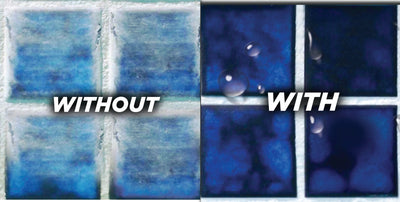There’s no doubt about it—grout is one of the hardest areas in your home to clean. Whether it’s in your bathroom, where scum builds up after every shower, or in your kitchen, where foodstuffs can find their way into grout, tackling the arduous task of grout cleaning is nobody’s favorite way to spend an afternoon.
People have different ways of approaching their grout cleaning task, but often, the solution usually involves scrubbing and bleach in some capacity. We’re here to tell you that this isn’t the right answer to cleaning your grout and that your decision to use bleach could be more costly to you and your home than you realize! Step away from that generic bleach-containing bathroom cleaner and take a look at five reasons why our Eliminate® Grout Cleaner & Sealer is far and away a better choice:
- Bleach doesn’t clean mold: One of the chief reasons to clean your grout is to ensure that mold and other organic forms of matter aren’t allowed to grow there, discoloring your grout and creating a whole slew of other problems. And while you might think that bleach is the best way to tackle mold growth, you’re quite mistaken: bleach doesn’t kill mold, it merely bleaches it! That’s right, not only will your mold survive a good bleaching, it’ll look as though it’s gone, lulling you into a false sense of security!
- Bleach is extremely caustic: Bleach is nothing to mess around with. In fact, even a small amount of bleach on your skin can lead to severe rashes, burns and other skin ailments, all of which need to be evaluated by a medical professional immediately. Cleaning with bleach means exposing yourself to the potential for harm. Moreover, if you live in a house with kids or pets, you’re also putting their health at risk every time you bring out the bleach to clean your grout.
- Bleach is corrosive to metals: If you’re using bleach to clean the grout in your bathroom or kitchen and accidently spray some on a nearby metal fixture, it’s not going to end well for that fixture. Metal is highly reactive to bleach and will almost immediately begin to corrode or rust. Worse yet, if you don’t catch your mistake and the bleach is left to sit on the metal, it’s going to damage your fixture even further, meaning added costs to replace it.
- Bleach is easily diluted: Bleach may be powerful at first, but it’s quickly diluted by just about anything, including water. What this means is that the longer you use bleach on your grout, the less effective it’s going to become over time. While your generic bathroom cleaner stops being effective in just a short time, Eliminate® Grout Cleaner & Sealer will keep on blasting away the stains and matter in your grout, giving you a deep clean that’s actually tangible.
- Bleach can damage your materials: Whether you’re cleaning in between beautiful tiles or you’re scrubbing at the grout around a fine porcelain fixture, the damage you’re not seeing could be the worse prospect of all when it comes to cleaning with bleach. Because bleach is so highly reactive and caustic, it could slowly be destroying the protective coating of the materials that it comes into contact with, including tile finishes, protective porcelain coats, wood finishes and more. Slowly but surely your materials are being broken down, until they’re beyond repair and require a full replacement, costing you more money to keep your home looking great.
If the time has come to give your grout a good old-fashioned cleaning, make sure that bleach isn’t part of the equation. Utilize the truly powerful cleaning effects of Eliminate® Grout Cleaner & Sealer and watch as your bathroom or kitchen becomes cleaner, without you having to worry about all of the above problems and more.





